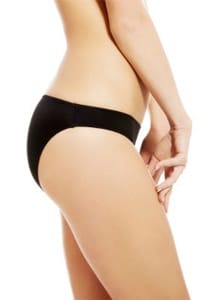
By the time you’ve decided that liposuction is the right call for you, chances are pretty good that you’re ready to banish those fat cells forever. So when you start reading headlines about “fat returning after liposuction,” you’re probably not excited about the prospect. After all, if you’ve paid to take care of a problem, you want your results to last a good long while. With conflicting reports out there, it’s hard to know for sure, so what’s the real story? Does fat come back after you’ve had liposuction performed?
How Liposuction Works
First, let’s look at how the procedure works to remove fat from your body. Liposuction is typically performed using local anesthetics and sedation. Several tiny incisions will be made at the treatment area to begin the procedure. Next, your plastic surgeon will insert a small tube, called a cannula, into the incisions, moving it back and forth to loosen the fatty deposits. These fat cells are then suctioned from the body through the cannula, removed permanently from the body. The incisions are sutured closed and your liposuction treatment is completed.
What Liposuction Does
By removing fat cells that have built up in unwanted areas, liposuction does what diet and exercise cannot do: refine the contour of the body. The procedure allows patients who are close to their ideal weight to touch-up the trouble spots they can’t seem to correct on their own. It’s a second chance for many patients to have the body they have always wanted.
One of the biggest benefits of the liposuction procedure is the promise that fat cells will not come back. Since the procedure was first introduced to patients more than 30 years ago, this has been held as fact. Yet, in recent years, doubts have arisen and some reports have claimed that the cells will come back, hidden deep within the abdomen as visceral fat. As a prospective patient of liposuction, it’s hard to know just what to believe.
The Final Answer on the Return of Fat
Liposuction does not change your body’s ability to lose, gain, or even control your weight. Patients who gain weight may see a return of their unwanted fat, but this is not the result of new cells developing. Rather, the fat cells left behind can swell with weight gain, recreating those bulges one again. This underlines the importance of maintaining your body weight throughout your liposuction process and for years afterwards.
Another common belief was that fat cells come back in other places or get redistributed because of liposuction. New studies show that fat cells stay exactly where they are supposed to be, but the fat storage pattern of your body may change. If your body is used to storing excess fat in your belly and thighs, but you remove those cells, it will find a new place to put the fat. This is why some patients begin gaining weight in other areas, like the face and back. The key to avoiding this isn’t skipping liposuction, it’s managing your weight after you have your procedure.
In response to these reports that fat cells return or become redistributed, many other independent studies were performed to get to the bottom of this controversy. The findings of these studies are all good news for patients, both past and future. By evaluating large groups of patients and tracking patient results for one year or more, using only precise measuring techniques, researchers concluded that fat cells do not return or get redistributed from elsewhere in the body.
Maintaining Your Liposuction Results
Now that it’s clear that fat cells won’t creep back into your body after liposuction, the real issue is clearly defined. Patients who fail to maintain their post-liposuction body weight are at risk for recreating the fatty areas they removed and finding new fat stored in other unwanted places. To maintain your liposuction results, live a healthy lifestyle and make smart choice about eating and exercising. You’ve worked hard to achieve the body you have, so don’t risk everything by packing on 10 or more pounds. Slight fluctuations are okay, within reason, but keep an eye on it. Remember that repeat liposuction treatments can pose increased risks for many patients, so it may not be an option for you, especially on the same treatment area! Spare yourself the second round of surgery prep by maintaining a regular exercise routine and eating healthy every day.
Banish Unwanted Fat Cells for Good
To start your journey to improved body contour with liposuction, you’ll need to start by scheduling a consultation with Dr. Robert Kessler, a board certified general and facial plastic surgeon, to learn more about what this surgery can do for you. Dr. Kessler completed his medical degree with honors from Tufts University in Boston as well as a distinguished General Surgical Residency with North Short/NYU in New York. Prior to that, he completed a Plastic Surgery residency with the U.S. Air Force and the University of Texas.
Today, Dr. Kessler operates his surgical practice in California, has worked as a surgical consultant and surgical assistant on ABC’s Extreme Makeover, and has lectured nationally and internationally on topics including facial rejuvenation, plastic surgery, and body contouring. To schedule an appointment with Dr. Kessler, contact his office, located at 2121 E Pacific Coast Hwy #200, in Newport Beach, CA, by calling 949.644.6544.






